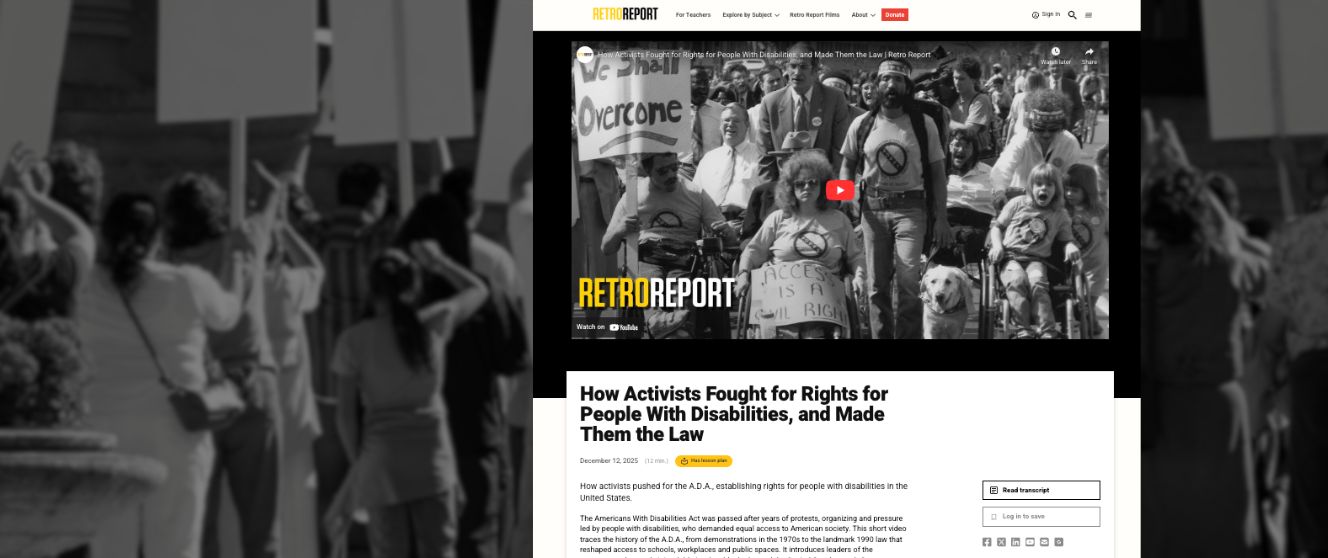
DREDF Statement on the American Health Care Act
 The American Health Care Act (AHCA), a bill unveiled last week by Republicans in both the House and the Senate, tells middle and low–income people with disabilities and their families a simple, brutal message: “You’re on your own.”
The American Health Care Act (AHCA), a bill unveiled last week by Republicans in both the House and the Senate, tells middle and low–income people with disabilities and their families a simple, brutal message: “You’re on your own.”
Key provisions in the bill that affect the Affordable Care Act, Medicaid, and even the Public Health Act, threaten to cut off people with disabilities from healthcare insurance, comprehensive coverage, and irreplaceable long–term services and supports for children and adults with disability, and seniors who depend on them for help with daily living tasks to stay in their homes and out of nursing homes.
As the bi–partisan Congressional Budget Office reports, the AHCA will:
- Over the next decade, cut $880 billion, 25 percent of Medicaid’s current budget, from a 51–year old federal–state partnership that serves over 10 million Americans with disabilities
- Replace individual insurance subsidies that give greater financial assistance to those with the least resources with a capped tax credit that does nothing to help the lowest income earners who have little to save
- Allow insurers to sell plans with actuarial values below 60 percent, which will attract younger, healthier enrollees and discourage enrollment by anyone who has more comprehensive healthcare needs
- Eliminates $9 billion by 2026 from Public Health and the Centers for Disease Control – forcing drastic reductions of key programs that get vaccinations to people who can’t afford them, prevention efforts aimed at heart disease, the first cause of death in Americans, and efforts to respond to disease outbreaks ranging from Measles to the Zika virus
- Permanently cuts funding to Planned Parenthood clinics that provide essential primary and preventive services to Medicaid–eligible women and men in clinics that often offer same–day appointments, longer hours, and week–end services that many people with disabilities need as accommodations. The CBO projects an increase in Medicaid costs due to a substantial increase in pregnancies and children among low–income women and families left without access to contraceptive services in their area, just as Medicaid funding is being drastically reduced
The Cumulative impact of the AHCA Will Fall on the Backs of Low–Income Children and Adults with Disabilities
- Those who have long–term care needs and who will inevitably be subject to Medicaid service cuts and waiting lists
- Those working people with disabilities who will lose Medicaid expansion coverage by 2020, and with it the capacity to earn a modest income or preserve a few assets while keeping access to needed healthcare services
- Those who will be forced into high–risk individual insurance pools to buy expensive insurance that offers limited benefits and scope
- Those children and individuals with compromised immune systems who will be further restricted in how much they can be in the public when vaccination is neglected
- Those aging Americans who will be subject to costs up to 5 times the average premium as they age into the 15 years before Medicare eligibility, a time when anyone who with a lifetime of physical labor behind them is especially prone to developing disabilities and chronic conditions
- Those seniors, who rely on Medicaid even after Medicare eligibility because Medicaid is the country’s primary source of care to meet the needs of people with chronic conditions. Medicaid pays for 2 out of every 3 residents in a nursing home, is the major payment for mental health and behavioral services for all Americans, and is the only public source of home and community–based services in the U.S.
By design or hubris, the AHCS creates the “perfect storm” for people with disabilities who struggle to escape a cycle of poverty, which is both a cause and a consequence of disability. It threatens key economic and employment gains that people with disabilities have made over the past several years of the Affordable Care Act’s full operation.
The AHCA will make it that much harder for people with disabilities and their families to get affordable comprehensive healthcare, and the impact of that consequence on the quality and length of our lives, is immeasurable. DREDF asks you to join with us in opposing the AHCA.

